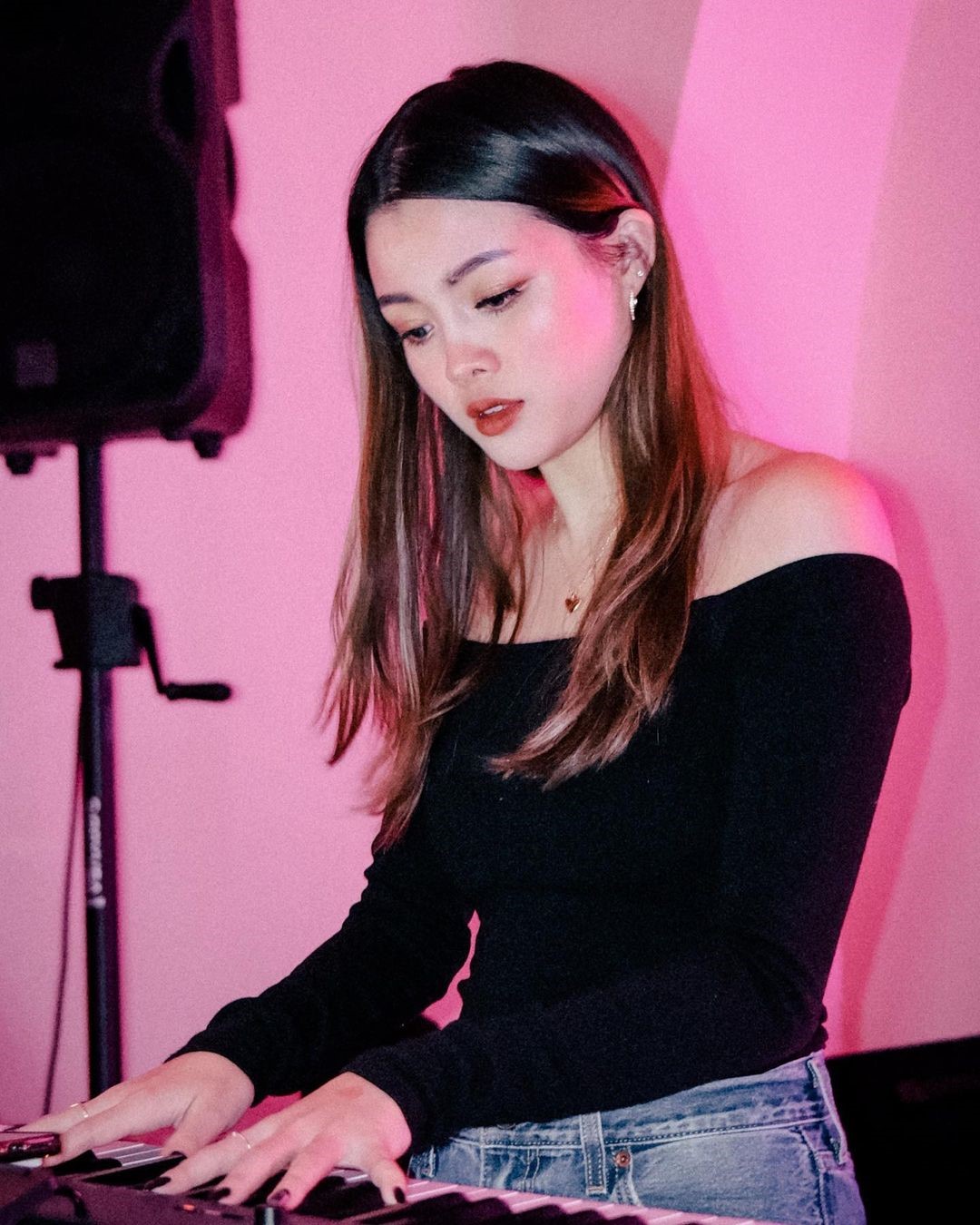This EP is the soundtrack of an unwatched 1980s film. It makes you feel like the protagonist of a classic film. This EP takes you back to the 1980s with a combination of city pop synth and nu-disco components, ranging from nightclub discos to high school proms. OnFilm composed and produced this EP. She believes that there should be greater female representation in the music industry, particularly in production. She wants to motivate individuals to pursue their dreams regardless of how many people tell them they can’t. Check out the exclusive interview with OnFilm and her EP “Disposable” below:

1. Can you tell us a bit about where you come from and how it all got started?
ONFILM: I am originally from Bangkok, Thailand but I moved to the US when I was 16. I was a classical pianist and realized I wanted to create more than play something pre-written so I attended a music high school and that was where it all began!
2. Did you have any formal training or are you self-taught?
ONFILM: I had formal classical training for piano and music theory ever since I was 4 years old. I taught myself to sing and play guitar though. I first started writing songs by myself, but now I am going to school for it at Berklee College of music, so I guess that is formal training? Haha.
3. Who were your first and strongest musical influences and why the name ‘ONFILM’?
ONFILM: Taylor Swift is my first AND strongest influence. I loved how she builds a strong relationship between lyrics and melody. And the name OnFilm came about from my name, “Film”. I always thought my name was weird but unique. I also wanted my music to have a retro vibe, like it was captured on film, so it was a fun little word play on my musical style and my name!
4. What do you feel are the key elements in your music that should resonate with listeners, and how would you personally describe your sound?
ONFILM: My music is definitely in the synth pop realm. Lots of 80s and disco influences. I would personally describe my sound as “the soundtrack to the 80s high school prom you wish you had”.

5. For most artists, originality is first preceded by a phase of learning and, often, emulating others. What was this like for you? How would you describe your own development as an artist and music maker, and the transition towards your own style, which is known as INDIE?
ONFILM:
I first started writing songs in middle school, and at the time people told me it sounded like something Taylor Swift wrote. It was flattering, but I wanted to have my own sound so I started expanding my music horizon and started to get into 80s synth pop and city pop. I think indie is a very broad term, but I would say I am a mix of indie, pop, and disco.
6. What’s your view on the role and function of music as political, cultural, spiritual, and/or social vehicles – and do you try and affront any of these themes in your work, or are you purely interested in music as an expression of technical artistry, personal narrative, and entertainment?
ONFILM:
I love writing songs that have a lot of social impact and reflect life in general. However, I love the care-free element of 80s music so much. I love how it’s all about dancing and having a good time, which is why I am thinking about making multiple music aliases where I can experiment with other kinds of writing. I would hate for my “political” or “cultural” songs to go to waste just because it doesn’t fit the 80s feel.
7. Do you feel that your music is giving you back just as much fulfillment as the amount of work you are putting into it or are you expecting something more, or different in the future?
ONFILM:
Oh for sure! I know I’m doing something right when I want to listen to my own music. Even if the songs aren’t selling a million copies and making me a millionaire, I am content with what I made and I am very happy that it is out in the world. Just the thought of a person genuinely enjoying something I made keeps me going.
8. Could you describe your creative processes? How do usually start, and go about shaping ideas into a completed song? Do you usually start with a tune, a beat, or a narrative in your head? And do you collaborate with others in this process?
ONFILM:
I usually start with a story for the song. I think about who’s talking, their perspective, and kind of get in their shoes. I then build a track around the mood of the song. Since I produce my own stuff, it gives me a lot of creative freedom to really nail the mood I’m going for. During this process I like to work alone, but I love collaborating with others when it comes to crafting the lyrics and making the song come to life.
9. What has been the most difficult thing you’ve had to endure in your life or music career so far?
ONFILM: I’m usually my biggest enemy. It’s hard to be happy with your work when you’re a perfectionism but I am working on it! I often have this fear that I will run out of ideas one day, but I guess we’ll deal with that when we have to.
10. On the contrary, what would you consider a successful, proud or significant point in your life or music career so far?
ONFILM: This EP for sure! I love writing all sorts of songs, but it’s always been hard to tell people what my sound is. This EP is my first project that I wrote entirely the way I want. It’s really satisfying when people vibe with what is “me”.
11. With social media having a heavy impact on our lives and the music business in general, how do you handle criticism, haters, and/or naysayers in general? Is it something you pay attention to, or simply ignore?
ONFILM: I feel like everyone is entitled to their own opinion. I am very sensitive to criticism, but I constantly remind myself that you can’t impress everyone, and not everyone is going to like you no matter how good you are. People are so quick to leave mean comments. But the truth is, people are much more mean on the internet, and I bet they wouldn’t say the same thing to my face.
12. Creative work in a studio or home environment, or interaction with a live audience? Which of these two options excites you most, and why?
ONFILM: I struggle with perform anxiety growing up so I definitely enjoy creative work behind the scenes more. Having to put yourself in the spotlight for people to judge you real time is still hard for me. I’d rather craft everything to my best ability, put it out there and not have to look at people’s reactions.
13. Do you think is it important for fans of your music to understand the real story and message driving each of your songs, or do you think everyone should be free to interpret your songs in their own personal way?
ONFILM: Everyone should get to interpret my songs the way they want, for sure. The songs were for me when I wrote them in my bedroom, but now they are for the listeners. It doesn’t matter how the song makes you feel, as long as you genuinely feel it. And as long as it makes them dance and sing along and have fun, that’s all that matters!
KEEP IN TOUCH:

